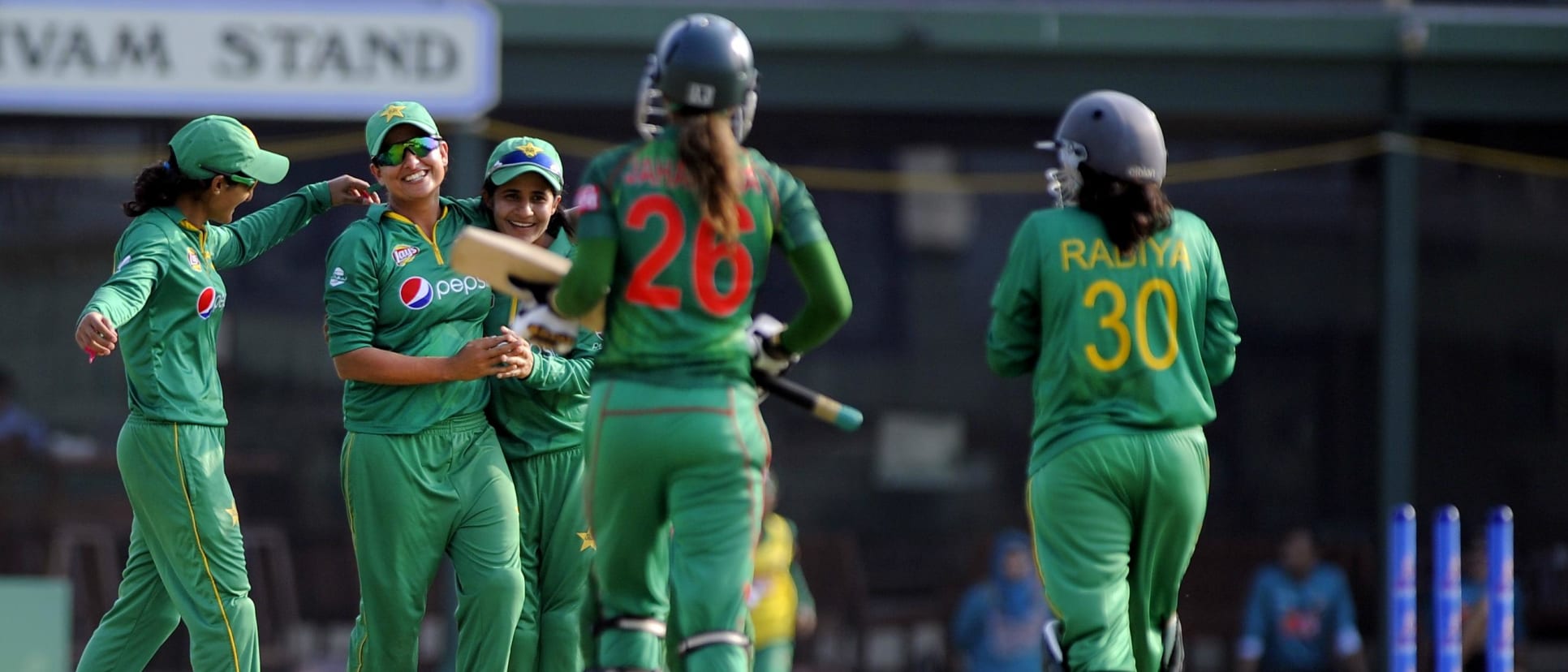Mir looks at big picture after 1000-100 double

With Sana Mir, it’s the small gestures that stand out.
On a day when she became the first Pakistan woman to have 100 One-Day International wickets against her name, she took a step back to let Ghulam Fatima, ten years her junior, bask in the limelight of her first player of the match award. Mir had handed the youngster a first cap just the previous day, and the pride was evident. There was a protective arm when needed, an encouraging nudge when called for, and translation services readily offered for the media obligations. When Fatima grimaced, burst into giggles and hid behind her captain once the cameras were turned off, the fondness was evident. Don’t worry, you keep doing this, your confidence will grow.
Mir, Pakistan Women’s 31-year-old skipper, introduces her team’s debutants to the world through selfies. She invokes the name of the legendary Rachel Hayhoe-Flint ahead of the ICC Women’s World Cup Qualifier 2017. She makes the likes of Thailand feel welcome at the party. She rallies the whole of Pakistan behind the team when it is hitting new heights in India – but with none of the chest-thumping that characterises clashes between the neighbours. She wants more crowds at matches and she wants more of them televised – “There’s a lot more pressure, but a lot more fun as well.”
Like the best leaders, there is rarely a ‘me’ in her statements.
Perhaps her one concession to the personal was when she finally got her 100th wicket, in her 92nd match on Wednesday (February 7), at the P Sara Oval in Colombo during the ICC Women’s World Cup Qualifier 2017. When Jahanara Alam aimed to attack, but missed and was bowled, Mir folded her hands and looked skywards. She seemed overwhelmed, her face a mix of relief, disbelief and elation, before she was enveloped by celebrating teammates.
Sana Mir takes her 100th ODI Wicket
Pakistan Women's Captain Sana Mir created history at the #WWC17 Qualifier by becoming the first ever bowler from Pakistan to take 100 ODI Wickets.
But that feat too is put in perspective. “It's a milestone to be the first Pakistani to reach there. I take pride in my bowling,” she said after the 67-run win. “It's very important to give breakthroughs to the country. Making it to 100 was quite special, especially in a game that was important for us for qualification.”
Apart from being only the 15th woman to achieve the feat, Mir also became only the sixth to complete the double of 100 wickets and 1000 runs. She is now at 1185, but with Pakistan working to develop its batters, she’s now focusing on bowling – and the thrill she still feels in sending down that perfect delivery to fox the best batters in the world, like the one that had Sophie Devine bowled in their T20 in New Zealand last year. “It’s a plus point that I have scored some runs.”
It’s a long way to come from chasing her brother’s tape balls in their backyard at four, and playing on the “streets of Pindi”.
An offspinner, she started out as a pacer, before a stress fracture forced the switch. “I used to love Waqar Younis, his action, and everything about fast bowlers," she said. "I’m still a fast bowler at heart!”
It comes as little surprise then that her two favourites on the cricket field are Waqar, a pacer, and MS Dhoni, a leader. “The way he has made a team that is now dominating, that is his legacy and I look up to him as a captain,” she says of the former India skipper.
Ask her about her unfaltering positivity, and, true to style, Mir takes no credit. “Thanks to god, there is nothing we can do without him. He’s been very kind to me,” she says, “I have a lot of wonderful people in my life who keep me positive when I get negative. My parents, my brother, my teachers, my mentor, my teammates, my coaches – my friends and my family are my support system. Their confidence, their belief in goodness keeps me positive.”
She insists she is no fan of routine. Ahead of a match, she either listens to the Junoon, Zeb and Haniya or Zeb Bangash on her playlist, or prays, or tries visualisation exercises: “Depends on the day, what is working.”
Having given up cricket in high school, her mother’s encouragement to show up at trials led her to pick up bat and ball after a break of four years. She is now the one encouraging future generations. “The overall perception in Pakistan about women’s cricket and women’s sport overall has changed,” says Mir. “Now, people want their daughters to play cricket. A lot of parents come to me – 10 years back they’d come and say, ‘Why are you playing cricket?’ Now they say, ‘We want our daughter to play, what’s the procedure, how we can get training for her?’”
Her aims for Pakistan cricket don’t stop there. “I want to have a culture of sports,” she says. “Not just cricket, but all sports. Until we have a culture of sports in the country, we cannot produce consistent results or strong reserve players.”
What it has produced, meanwhile, is a flag-bearer to make the country proud.